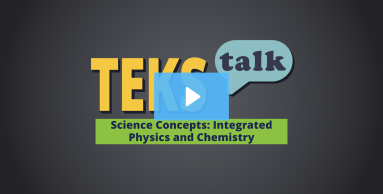
Knowledge and Skills Statement
The further explanation is designed to be a resource for educators that helps them better understand the topic their students are learning. Further explanations may be written at a more complex level than would be expected for students at the grade level.
A typical structure for a discussion is Claim-Evidence-Reasoning (CER). A claim is an answer to a scientific question stated as a fact. Students gather evidence to support their claims. The evidence should justify the accuracy of the claim and include data points, scientific observations, or a summary of data. Multiple sources should support the evidence. The reasoning connects the claim and the evidence logically. It should also explain why the claim is reasonable based on scientific ideas and principles.
Scientists develop and defend their explanations in collaborative discussions with peers (other scientists and engineers) using evidence based on a preponderance of data. Engineers collaborate with their peers through the design process, evaluating others and justifying their own solutions using the design criteria and evidence.
Research
Walker, Joi Phelps, Andrea Gay Van Duzor, and Meghan A. Lower. "Facilitating Argumentation in the Laboratory: The Challenges of Claim Change and Justification by Theory." Journal of Chemical Education 96, no. 3 (2019): 435–444.
https://doi.org/10.1021/acs.jchemed.8b00745
Summary: This study examines student argumentation within a two-semester general chemistry laboratory sequence at a minority-serving, comprehensive university in the Midwest, which employed the Argument-Driven Inquiry (ADI) instructional model for laboratory instruction.
